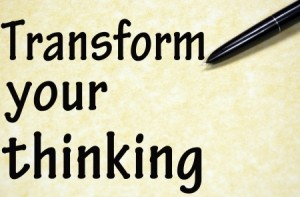You’ve Got Mail – Tons of It!
In this age of corporate websites and online applications, who needs a recruiter, right? You’re tech savvy. You know your way around the internet. You can search out your next job on your own, right? WRONG
Why? One day last week, our small recruiting firm received 200 applications in 10 minutes. We thought we’d been hacked but they were all legitimate applications….from unqualified people. And that’s why you need a recruiter.
Most large companies have their own career centers where you can apply directly. They also post their jobs on Indeed, Careersinfood, Monster and other large boards. They get THOUSANDS of applications and, qualified or not, you fall into that large pot. You’ll be lucky if your application gets reviewed at all, and, even if it does, they will be dragging themselves through the drivel with a frown on their face.
When you have a recruiter representing you, that person becomes your direct link to the opportunity. He or she already has an “in” with the HR department. The recruiter can advise you if you’ve left valuable experience off your resume and will highlight how your strengths fit the company’s needs.
A recruiter can follow-up on your candidacy. You can’t do that through an application portal. Technology is wonderful – and we all use it. But, sometimes to really stand out from the crowd, you need the personal touch. Don’t underestimate the value of personal representation when you’re looking for a new job.
Music aficionados will catch my homage to a great song covered by many top artists in the 60s and 70s. As much as I love that song, this blog isn’t about social issues. My concern isn’t with carpenters, millers or tinkers. It’s with resume writing and a creed every person who “works their hands in wood” knows. That is “Measure twice, cut once.”
What does that have to do with resume writing? Everything! A person who works with tangible objects is faced with physical reminders of their failures – a board cut too short becomes worthless. However, when taking short cuts on a resume, the writer might not understand the impact. Your resume is your board – it’s your natural resource. It has value. Once you send it out, it’s cut! If you send a poorly constructed resume with misspellings and grammar errors to a company, you’ve wasted your first and only chance to impress them. If your resume tells them that you take short cuts, your chance of getting that job falls into your pile of short boards. You can’t recut them and make them longer.
So, how do you write a good resume? First, make sure it tells what you actually do. Don’t sacrifice the story you’re telling to any preconceived notion of what a resume should be. Second, proofread, proofread, and then proofread again. Spell check is nice but it won’t pick up any word that’s in its dictionary. So, manager can become manger, angle can become angel and yes, I’ve even seen general become genital! Proofread…it’s worth the time. Third, consult the grammar police. If you’ve left a job, write your responsibilities in the past tense. If you’re still there, write them in the present tense. If you’re a professional in the work force, you wouldn’t refer to your college years as “I drink a lot of beer.” You’d say “I drank a lot of beer.” It’s in the past! So are your previous jobs.
What’s the moral of this story? If you want future employers to sing your praises, measure twice, cut once. It’s worth the extra effort!
On a normal workday in 2001, I opened my e-mail to find a note from my high school sweetheart. Trust me; I’ve been out of high school a looooonnnngg time. After retrieving my heart from my throat, I wrote back one question: how did you find me?
His response was quite simple, “I Googled your name.”
“Google, what’s that?” I asked myself. Strange to hear now but at that time, other search engines were more popular and far less efficient. Plus, the internet wasn’t our number one source for information. Fifteen years later, I Google everything! And so do potential employers. Not only do they use Google, but they use all forms of social media to vet candidates. Yes, they check Twitter, Facebook, Instagram, YouTube and every source available right at their fingertips. They make decisions about future employees based on not just what you tell them but what you don’t tell them.
Penn State assistant football coach Herb Hand summed it up this way in a recent tweet, “Dropped another prospect this AM due to his social media presence … Actually glad I got to see the ‘real’ person before we offered him.”
So, before you post a profanity-laced rant about being treated unfairly by a coworker or boss, before you post a YouTube video of your friend’s epic loss at beer pong – and then tag him – before you post a picture of yourself in a skimpy swimsuit with a provocative pose, ask yourself “Would I put this on my resume?” If not, then don’t do it. Once on the internet, the image lasts forever and you have no control over who sees it!
 Last weekend many of us celebrated Easter. The stores were full of pictures of brightly decorated baskets and eggs. The smell of chocolate was pervasive. Kids were excited about the arrival of the Easter Bunny. And, invariably we saw signs wishing us a “Hoppy” Easter. That’s what the Easter Bunny does – he hops.
Last weekend many of us celebrated Easter. The stores were full of pictures of brightly decorated baskets and eggs. The smell of chocolate was pervasive. Kids were excited about the arrival of the Easter Bunny. And, invariably we saw signs wishing us a “Hoppy” Easter. That’s what the Easter Bunny does – he hops.
The question is, do you? Job hop, I mean. The number one reason clients reject resumes is job history. Companies don’t want to hire job hoppers. They are looking for individuals who bring stability.
How do you prevent yourself from being a job hopper? Evaluate! Research! And, then evaluate and do your research! Your career is a vehicle and you are the driver. Think before you turn the wheel. If you don’t like living in a rural area, don’t take a job there. If you don’t like shift work, don’t take a job that requires it. If you don’t want to leave family, don’t take a job on the other side of the country. Most reasons people job hop can be foreseen. Check into your future employer – is the company financially stable? Is the company for sale? Put forth your best effort to make every job change a good career move. In the long run, you will be greatly rewarded.
Strange advice coming from a recruiter but, don’t be an Easter Bunny!
 by Jeff Haden, Contributing Editor, Inc.
by Jeff Haden, Contributing Editor, Inc.
Sometimes the questions you’re asked are more important than the answers job candidates give to your questions.
Almost every small business owner has interviewed people to fill their openings. I have. You have.
So you know it almost always seems like a waste of time when you ask a candidate, “What questions do you have for me?”
Why is that a waste of time? Most people, when they ask questions, don’t actually care about your answers; they just hope to make themselves look good by asking what they think will seem like “smart” questions. To them, what they ask is the important thing; they really don’t care how you answer.
But a few people — the best people — actually care. The best candidates ask questions they want you to answer because they’re interviewing your company and evaluating whether they really want to work for you. (Never forget that the best candidates almost always have options.)
What kinds of questions do the people you really want to hire ask?
1. “What do you expect me to accomplish in the first ninety days?”
Great candidates want to hit the ground running. They don’t want to spend weeks or months “getting to know the organization.” They don’t want to spend huge chunks of time in orientation, in training, or in the futile pursuit of getting their feet wet.
They want to make a difference — and they want to make that difference right now.
2. “If you were to rank them, what are the top three attributes your top performers have in common?”
Great candidates also want to be great employees. They know every organization is different — and so are the key qualities of top performers in those organizations.
Maybe your top performers work longer hours. Maybe creativity is more important than methodology. Maybe constantly landing new customers in new markets is more important than building long-term customer relationships. Maybe the key is a willingness to spend the same amount of time educating an entry-level customer as helping an enthusiast who wants high-end equipment.
Great candidates want to know, because 1) they want to know if they will fit in, and 2) if they do fit in, they want to know how they can be a top performer.
3. “What really drives results in this job?”
Employees are investments, and you expect every employee to generate a positive return on his or her salary. (Otherwise why do you have them on the payroll?)
In every job some activities make a bigger difference than others. You need your HR team to fill job openings, but what you really want is for them to find the rightcandidates, because that results in higher retention rates, lower training costs, and better overall productivity.
You need your service techs to perform effective repairs, but what you really want is for those techs to identify ways to solve problems and provide other benefits — in short, to build customers relationships and even generate additional sales.
Great candidates want to know what truly makes a difference and drives results, because they know helping the company succeed means they will succeed as well.
4. “What are the company’s highest priority goals this year, and how would my role contribute?”
Is the job the candidate will fill important? Does that job matter?
Great candidates want a job with meaning, with a larger purpose — and they want to work with people who approach their jobs the same way.
Otherwise a job is just a job.
5. “How many new employees were brought in by your current employees?”
Employees who love their jobs naturally recommend their company to their friends and peers. The same is true for people in leadership positions — people naturally try to bring on board talented people they previously worked with. They’ve built relationships, developed trust, and shown a level of competence that made someone go out of their way to follow them to a new organization.
And all of that speaks incredibly well to the quality of the workplace and the culture.
6. “What do employees do in their spare time?”
Happy employees 1) like what they do, and 2) like the people they work with.
Granted, this is a tough question to answer. Unless your company is really small, all you can do is speak in generalities. (Or you can pick out a few people and describe what they do outside of work — and if you can’t even do that, you don’t know your employees nearly well enough.)
Great candidates want to be sure of having a reasonable chance of fitting in on a personal level as well as a professional level because cultural fit is extremely important to them.
 I’ve been recruiting for 22 years. I started my business with a fax machine and a phone. I made hundreds of phone calls every day and got a good percentage of return calls. Then, things began to change. My fax machine was replaced by email. My hard copy resumes are really only used as note paper. The electronic copies are the ones I forward to my clients. Recruiting is done through networks and portals – electronically.
I’ve been recruiting for 22 years. I started my business with a fax machine and a phone. I made hundreds of phone calls every day and got a good percentage of return calls. Then, things began to change. My fax machine was replaced by email. My hard copy resumes are really only used as note paper. The electronic copies are the ones I forward to my clients. Recruiting is done through networks and portals – electronically.
And I have been complaining about it……. Where’s the personal touch. Recruiters add more to the mix than just forwarding paper from one website to another. We do preliminary interviews. We prequalify. We complete the story. We get to know the person behind the resume and in doing so help with finding the right person to fit the corporate culture. Not everything can be done electronically.
But then, a candidate called yesterday when I was working on a posting that would go to 300 college professors. I know I was short with him. Didn’t he understand that he was one person whose resume was moving through the system and I was working on something that would reach many more? Oh, no! What happened to my commitment to the personal touch?
And then, this morning I find an article on my desk entitled “Has technology shortchanged your communication skills?” Now, I’m fully convicted…and reformed in less than 24 hours. My posts are important. I have to work in the 21st century workplace. But, my commitment to the need for personal interaction is renewed. If you call me and want to talk, I’ll listen. If I cut you short, tell me to read my own blog!
 A well written resume is the essential first step to advancing your career. Pretty obvious, right? Then, why are so many resumes riddled with errors – and what is that pesky word?
A well written resume is the essential first step to advancing your career. Pretty obvious, right? Then, why are so many resumes riddled with errors – and what is that pesky word?
The word is MANAGER. Why does it happen? Because we all depend on our computer’s spell check instead of taking the extra few minutes to reread documents ourselves. You see, MANGER is a word. So spell check won’t tell you that you’ve left out a critical letter. Over the years, hundreds of people have listed their title as “a box or trough in a stable or barn from which horses or cattle eat.”
It’s not a deal breaker. It’s obviously a typo and I alert people when I see it. Other misspellings are more serious – words that obviously are not typos. I know this sounds like I‘m nitpicking. However, spelling and grammar errors are indicative of not treating your resume with the attention to detail it deserves. It plants the seed that you approach your job with the same lackadaisical attitude.
Recruiters and hiring managers review resumes quickly – literally for just a few seconds. Don’t cause them to spend half their time “tsking” your oversight or questioning your work ethic.
 Love Them Or Hate Them, We All Use Them! They’re especially prevalent on resumes. Should you use them? Absolutely, yes! I recently read that, on average, recruiters read a resume for SIX SECONDS. Astounding, right? You spent hours deciding whether you facilitated or led that team project and the gatekeeper in HR is spending SIX SECONDS reading it. Before you condemn them, they’re busy, too! With the increasing practice of company career sites and internal recruiters, these people see hundreds of resumes from unqualified applicants every day. They no longer have 4 or 5 qualified candidates with stellar resume from which to choose. They’re looking for the proverbial “needle in a haystack.”
Love Them Or Hate Them, We All Use Them! They’re especially prevalent on resumes. Should you use them? Absolutely, yes! I recently read that, on average, recruiters read a resume for SIX SECONDS. Astounding, right? You spent hours deciding whether you facilitated or led that team project and the gatekeeper in HR is spending SIX SECONDS reading it. Before you condemn them, they’re busy, too! With the increasing practice of company career sites and internal recruiters, these people see hundreds of resumes from unqualified applicants every day. They no longer have 4 or 5 qualified candidates with stellar resume from which to choose. They’re looking for the proverbial “needle in a haystack.”
So, how do you become the needle? This is where acronyms are your friends. In the middle of text, any word with all caps stands out, RIGHT? You can draw the recruiter’s eyes to your qualifications by smartly describing your accomplishments in letters. Consider the following:
GMP, HACCP, SOP, SQF, SPC, ASQ, BRC. To a recruiter looking for a quality technologist, supervisor, or manager in the food industry, you just qualified yourself to be worthy of more than six seconds.
Good manufacturing practices, hazard analysis critical control points, standard operating procedures, safe quality foods, statistical process control, American society of quality, British retail consortium translates to BLAH, BLAH, BLAH. You lost your audience halfway through. Or, worse yet, if they bothered to slog through all the verbiage, they may be thinking, “doesn’t this person know the acronym?”
In today’s “instant” environment, we must all learn to write smarter to capture our audience’s attention. Hope I kept yours!
 Or, in this case, “What’s in a Title?” Some say “everything.” Others say “nothing.” In today’s business culture, the truth is you have to search and research to determine what a title means in each individual company.
Or, in this case, “What’s in a Title?” Some say “everything.” Others say “nothing.” In today’s business culture, the truth is you have to search and research to determine what a title means in each individual company.
Job and department titles started evolving over fifty years ago. Garbage Collectors became Sanitary Engineers. People scoffed and pointed out that they still pick up garbage all day long. Secretaries became Administrative Assistants – a better description of their work responsibilities but everyone knew the quality of their work lives was still determined by close interaction with a good or bad boss.
The Personnel department became Human Resources. That was pretty readily accepted by everyone except a special few who were strongly rooted in the past. “Talent Acquisition” was met by more than one eye roll, but, ultimately, has been accepted. In general department name changes go more smoothly than title changes.
We’re living in a dynamic time – a time when the very essence of running a company, a factory or a department is under scrutiny. We’re not just evaluating the raw materials we use but also the manner in which we produce – including the dynamics of interaction of our human resources. In the process, Managers have become Leaders or Coordinators or even Gurus. To many people, “They’re still filling the same role,” becomes harder to understand. “To be a manager” is a career goal for many new college graduates. It’s a hard goal to retire. But, retire it must.
Me: “What is your career goal?” Candidate: “I want to be a (specific department) manager.” Or, better yet, “I want to manage in a Team Environment.” Nope, that’s called leading!
It’s time to move beyond wanting to be a manager!!!! Or director!!!! A career goal is what you want to do, not what you want to be called. If you want to succeed in today’s environment, ignore the title and look at other factors when considering a job opportunity:
- Research the company culture. Is the corporate environment right for you?
- What are the spheres of influence?
- Responsibilities?
- Where does the position fall on the company’s organizational chart? Who do you report to?
Does the compensation package represent the next step for you?
Don’t pass up a killer opportunity and unlimited growth potential with a fabulous company because you’re stuck on a title. Delve deeper. Your career will be enhanced.
 Did you ever notice how beautiful barren trees look when everything is covered with snow. Your eyes are drawn in to see and appreciate every gnarly intricacy of the branches. You can create that same appreciation for the words on your resume by leaving plenty of white space. Don’t clutter the substance of your experience with flowery text and resume buzz words.
Did you ever notice how beautiful barren trees look when everything is covered with snow. Your eyes are drawn in to see and appreciate every gnarly intricacy of the branches. You can create that same appreciation for the words on your resume by leaving plenty of white space. Don’t clutter the substance of your experience with flowery text and resume buzz words.
Make your resume aesthetically inviting. Think about the difference between a short captivating book versus “Atlas Shrugged” or “War and Peace.” You don’t want the readers’ first reaction to be bracing for the sequel of one of these two classics. Human Resource professionals and Hiring Managers are busy. They need to be able to scan your resume and glean an outline of your experience. If they don’t think they can do that, you might get passed over. Not on purpose, not because they’re lazy but because someone else’s resume caught their eye. Here are some guidelines:
- Bullet points are great. Use them! Also, rank them. Place the experiences most crucial to your role first.
- Margins: try for an inch, maybe ¾. No less.
- Font: twelve point is great. Eleven, maybe ten if it’s absolutely necessary. Absolutely nothing smaller!
- Keep the format simple. Choose one font. Most resumes are handled electronically. The more complicated the format, the greater chance that the cyber trolls will un-format your document.
- Don’t use programs with text boxes. I’ve received more than one resume where each box was on its own page.
- DON’T use a script text. In the writing industry, agents won’t even look at your work unless it’s either Times New Roman or Courier New. They value their eyes and so do Hiring Managers.
Did you like my bullet points? Hopefully, they proved my point better than all the flowery words. Now, think Spring!




